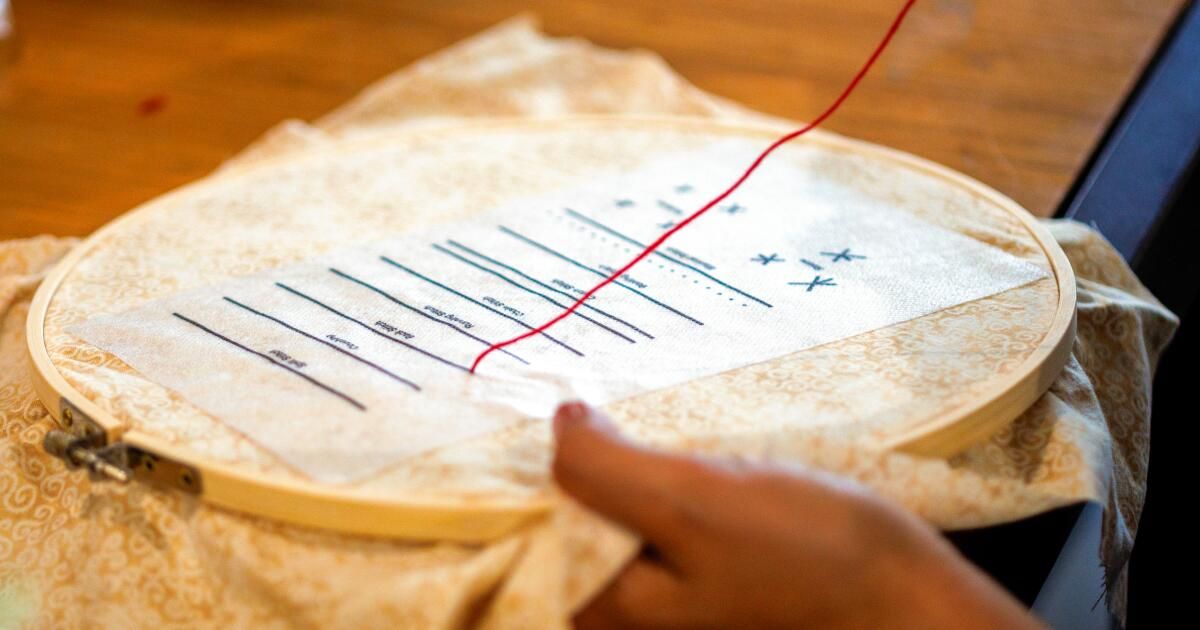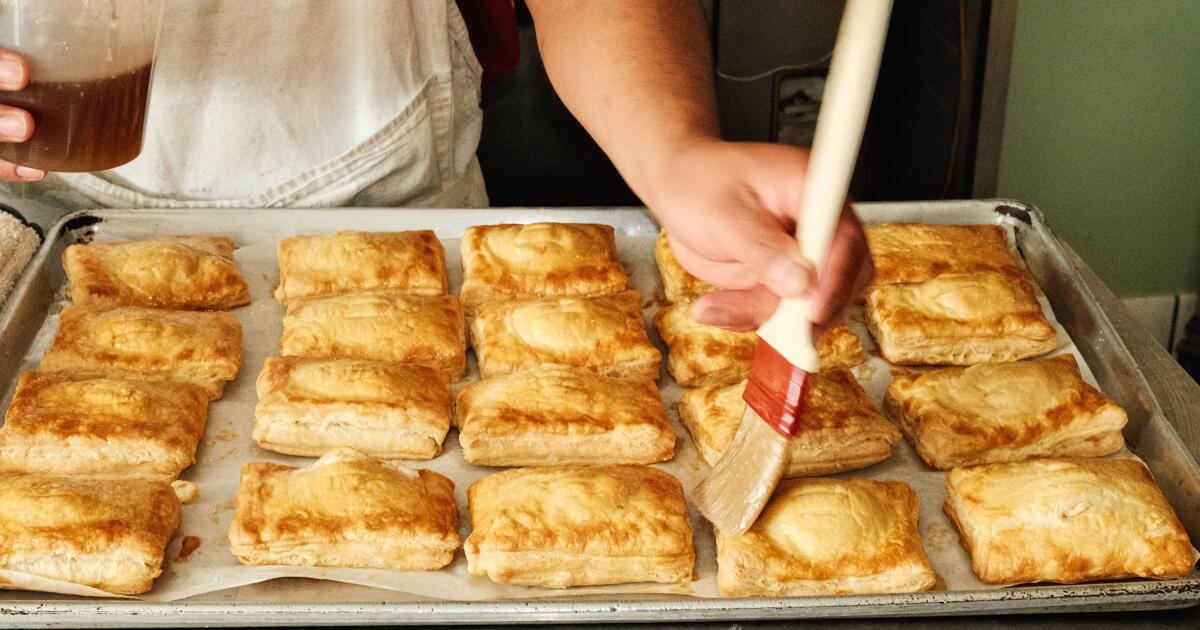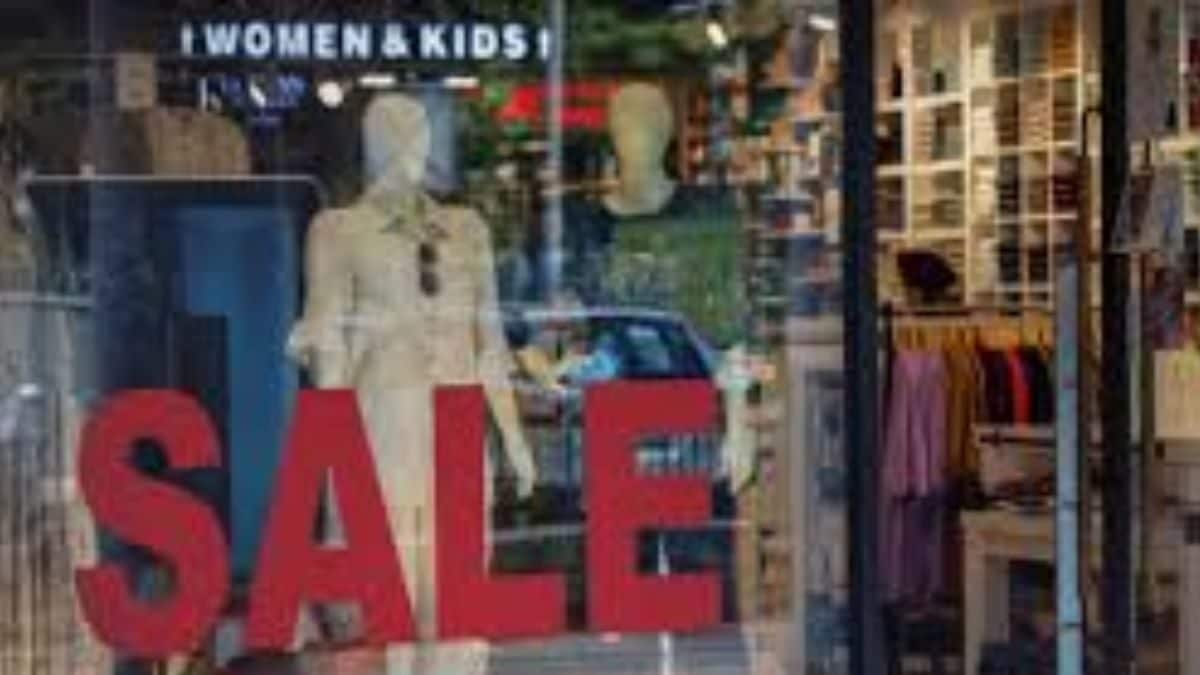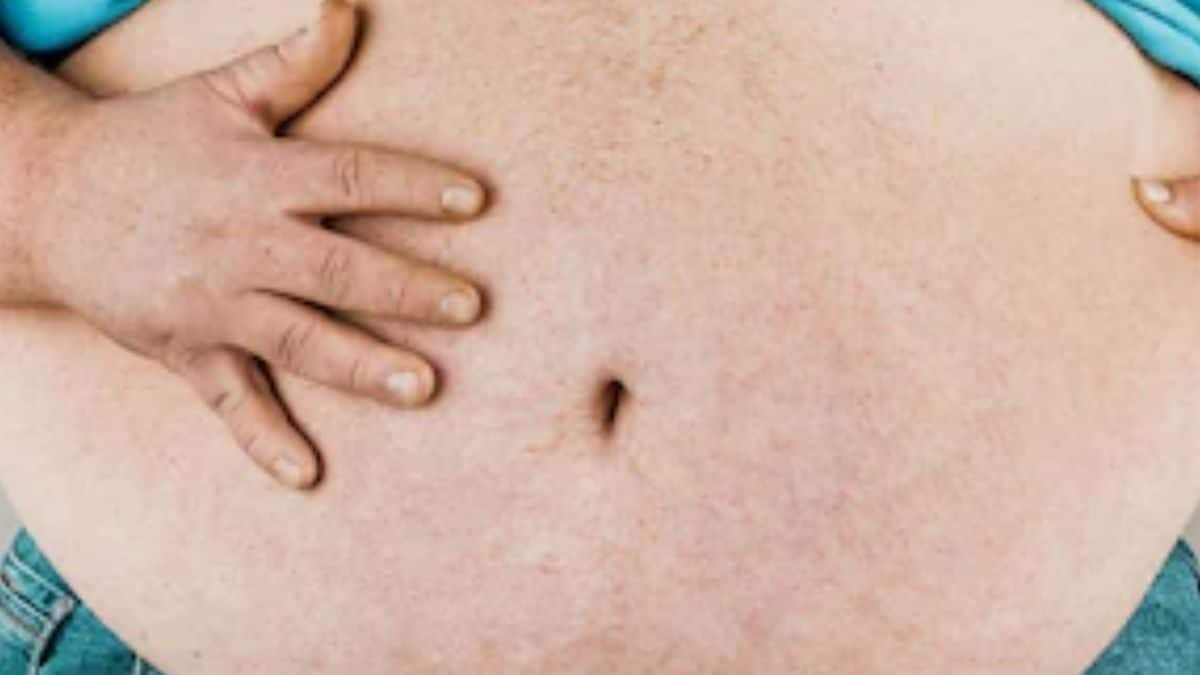On a warm summer afternoon, Sary Gil of Norwalk tediously mends one of her T-shirts with red thread and decorative stitches that look like rosebuds. No one would know it, but just three weeks ago she sewed for the first time. Since then, on Wednesdays after work, she attends the Radical Sewing Club in Huntington Park.
Her motivation was simple: She wanted to learn how to sew so she could fix damaged garments like this T-shirt. “My first day here I learned using the hands-on sewing guide. I started with backstitch, split stitch, blanket stitch, and flowers… I wasn’t sure how the class was structured, so I went in blind,” she said. But once founder Scout Quiquivix explained to her that the club was started to fight fast fashion, and by extension, capitalism, her interest deepened. The new skill was more in line with her morals than she thought.
Founded in 2023, Radical Sewing Club teaches practical hand-sewing and mending techniques every Wednesday evening. For $5 (though no one is turned away for lack of funds), predominantly Southeast Los Angeles residents gather at Arts Space HP, a multi-use space with a left-wing bookstore, coffee shop, art gallery, and community programming area.
At the Radical Sewing Club class, Scout Quiquivix, left, shows beginners how long thread should be before threading it through a needle.
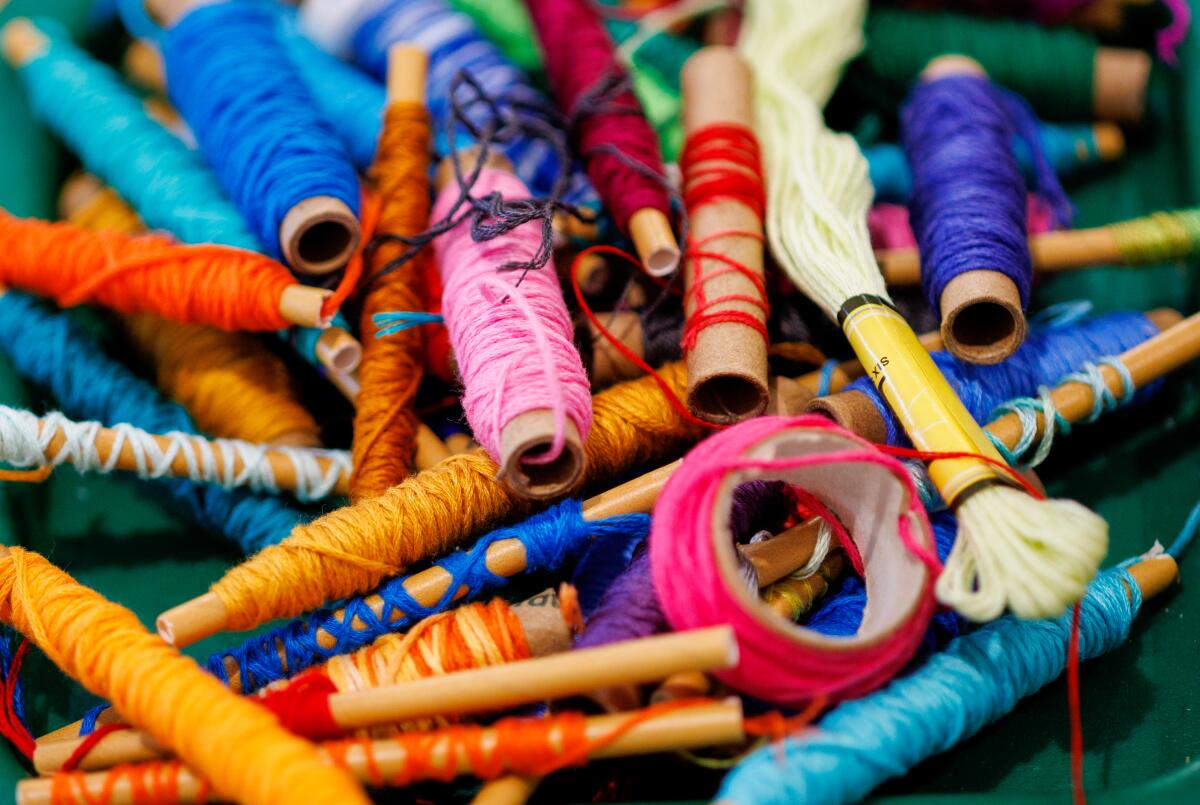
Various colors and sizes of thread on spools during the Radical Sewing Club class.
Fast fashion (i.e. clothing that is made quickly and cheaply to fit rapidly changing trends) has been booming for years. But, recently, so has resistance to it. Shein, a brand synonymous with fast fashion and adored by Gen Z, updates its website with 10,000 new pieces per month, according to National Public Radiotesting what shoppers want and then deciding what to produce in large quantities. Shein describes this strategy as “on-demand,” but some discerning shoppers call it “ultra-fast fashion.”
The Radical Sewing Club is among a growing number of Los Angeles communities preaching sustainability in fashion. Others are Suay LAwhich used to offer repair services in the past and currently offers community dyeing services (between $5 and $50 per dyed item), and Other Lives studieswhich offers practical recycling classes such as fabric painting and decorative repairs ($50 or more per class).
At the Radical Sewing Club meeting, a dozen seamstresses and wannabes gathered around a square of shared tables. Some are there for the first time, while others, like Gil, have become regular attendees. Because of the fluctuating flow of attendees, there is no single lesson for each meeting. The suggested fee of $5 covers materials like needles, thread, patchwork fabric, and more, some of which Quiquivix purchases, some of which has been donated.
Beginners can use the embroidery hoops provided to practice a variety of sewing techniques. Once they feel comfortable, they can practice those stitches on clothing they bring to be mended. At this meeting, Quiquivix walks among attendees, teaching how to thread a needle (“Make sure the thread is as long as your hand to your shoulder”) and answering questions, all with rescue dog Cinnamon in a pet carrier backpack.
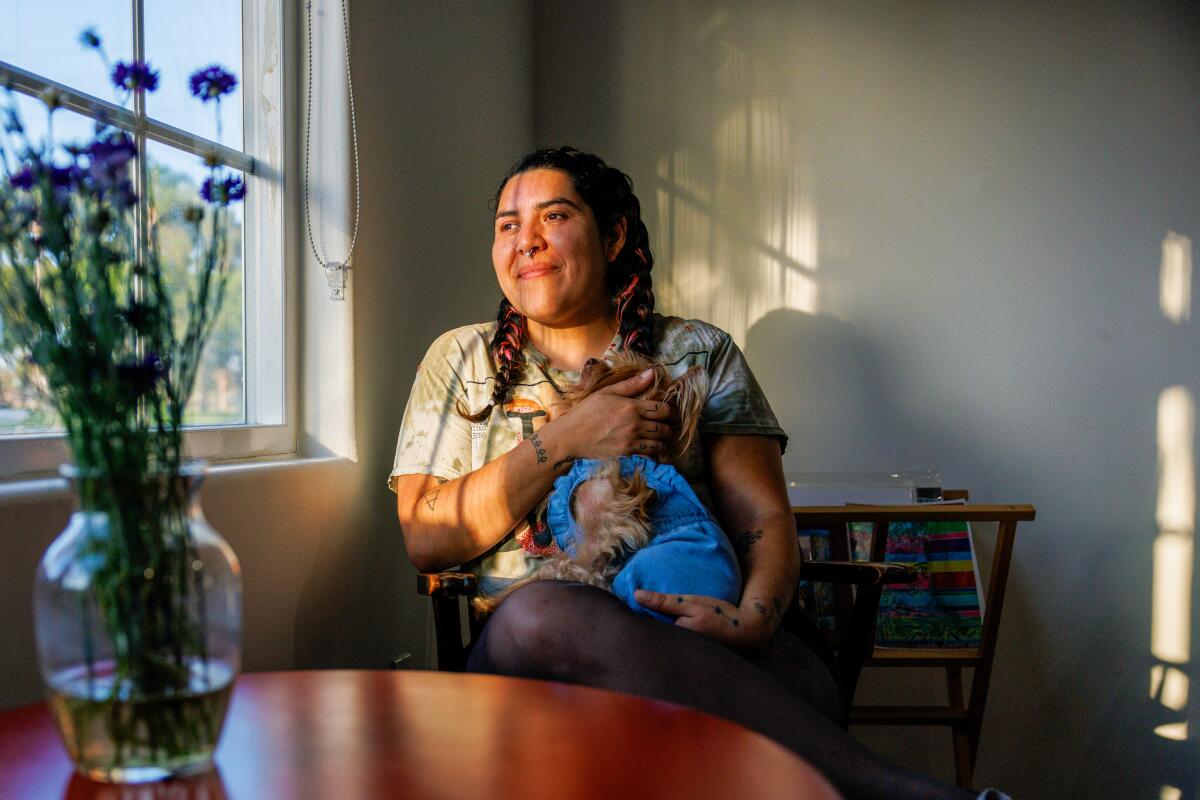
Scout Quiquivix, with her little dog Cinnamon, runs the Radical Sewing Club.
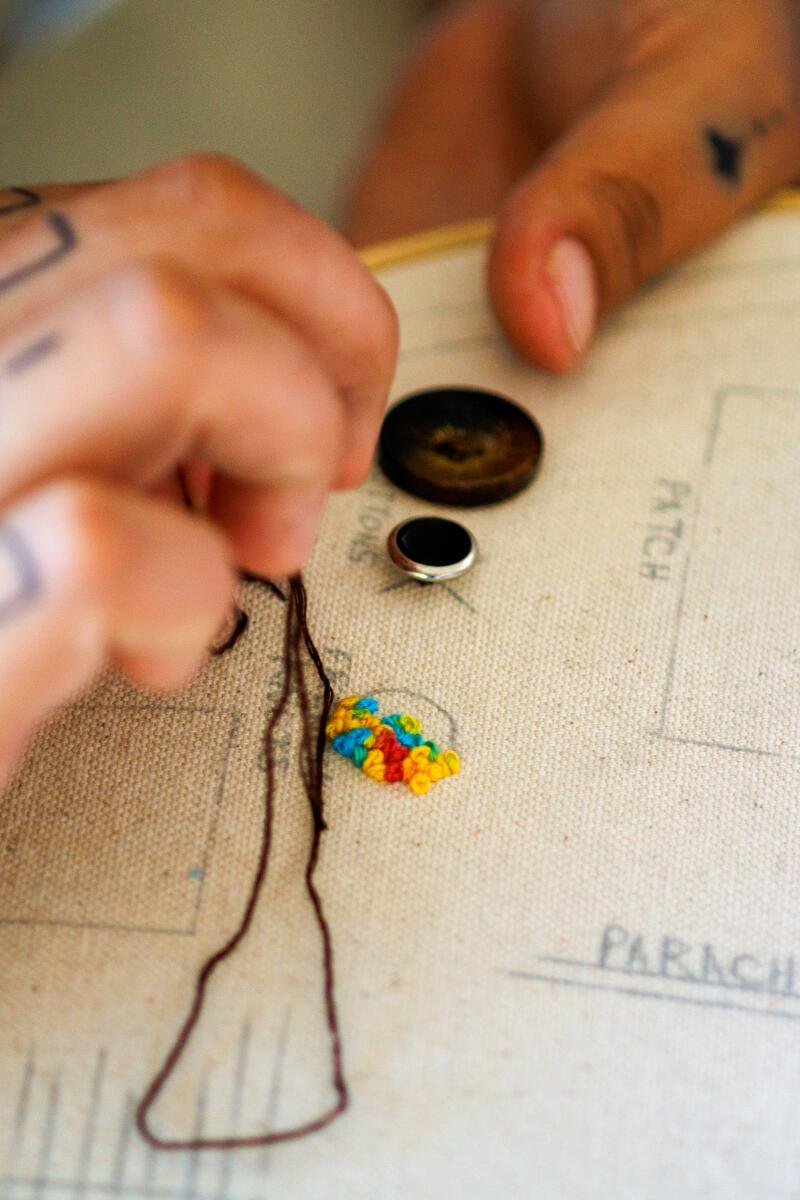
Scout Quiquivix uses a template to show beginners different stitching techniques.
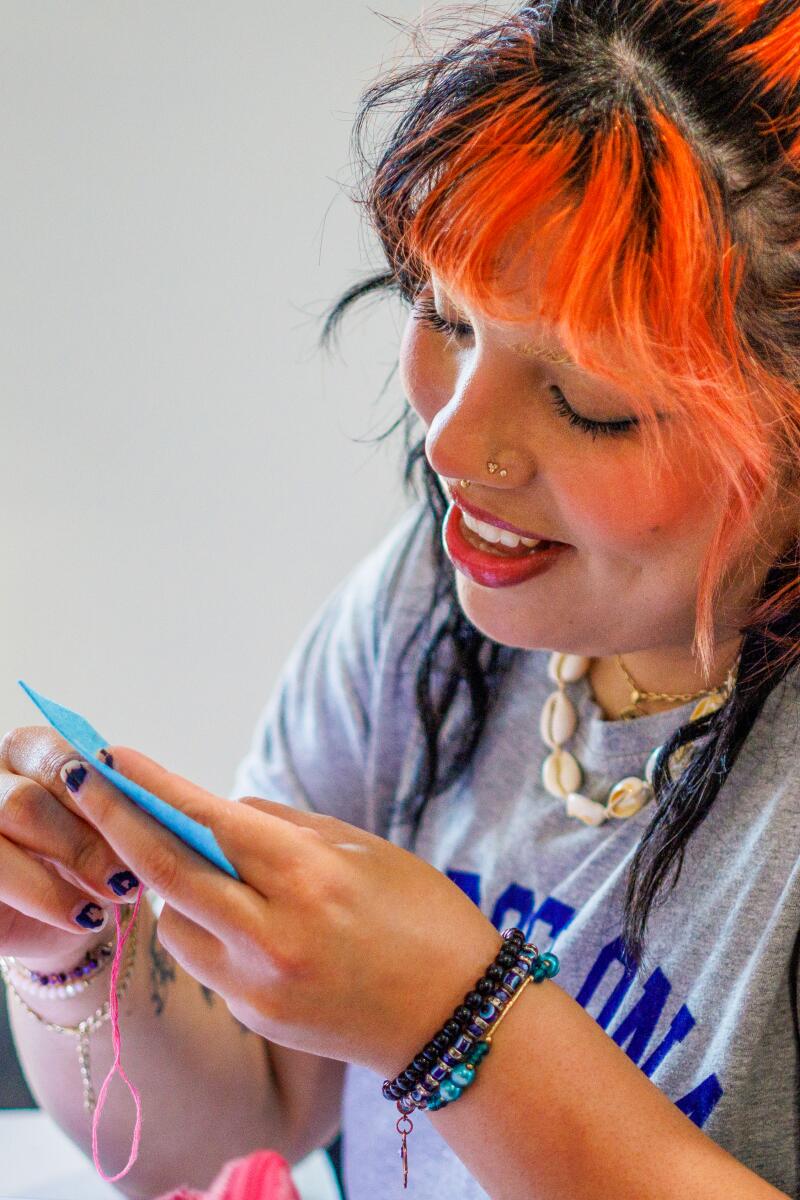
Veronica Tadeo from Los Angeles works on a sewing design at the Radical Sewing Club.
Brenda Ceja of Whittier brought a pair of ripped jeans for her second visit to the Radical Sewing Club. Before attending, she had no sewing experience. “I think this is so important because it’s a life skill that people aren’t taught anymore. I can teach others the skills I learn here. It has a ripple effect,” she said.
This is especially true for Quiquivix, who works as a thrift store manager by day and grew up in a Pomona suburb. She learned to mend, sew and buy used clothing from her mother. During the pandemic, she discovered videos on social media of creative embroidery used not only to design but also to repair. Quiquivix initially sought out commissioned work mending other people’s clothing, but then decided to channel her experience and the patience she learned working at youth summer camps into teaching a class.
The radical element of the club is rooted in anti-capitalist values. “The fact that we’re repairing our clothes in a highly capitalist society is radical. It’s radical to fix something instead of throwing it away and buying something new,” Quiquivix said. This mission is more apparent to some attendees than others, but Quiquivix doesn’t mind. “If I can get someone to come and learn how to sew and repair their clothes, and that’s all they learn from it, they’re still going to go home and repair their clothes and still do something anti-capitalist,” she said.
Matthew Gardea and Sofia Guevara of Downey joined Genevieve Quiquivix, Scout’s wife, at a table. Gardea and Guevara, who found the club on Instagram and attended once before, are working on embroidering a decorative patch with the Radical Sewing Club logo. Genevieve Quiquivix is using red, green and yellow thread to create a design to repair holes in the heel of a sock.
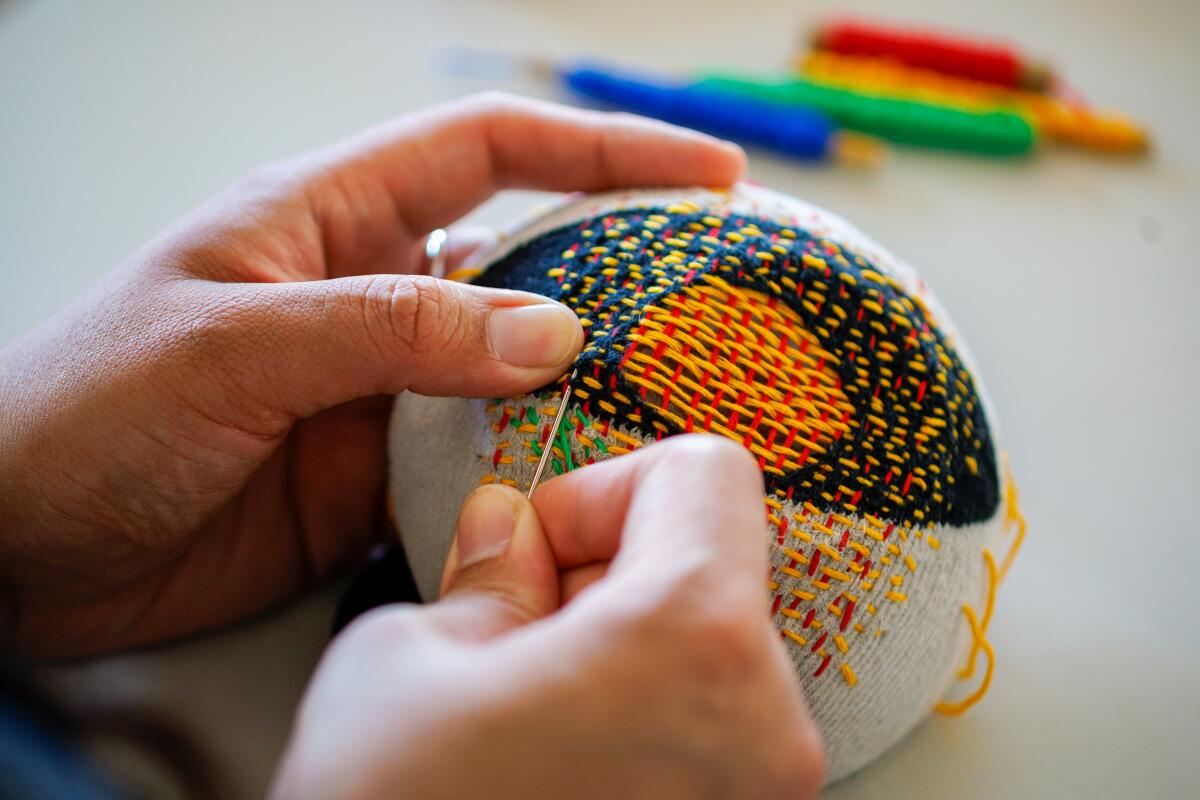
Genevieve Quiquivix darns a sock using a knitting pattern.
“In the past there has been a stigma that if you do this [mending] “You’re poor. This breaks down those walls,” Genevieve Quiquivix said. Guevara agrees: “At school, when I wore hand-me-down pants that I altered to fit, kids would make fun of me. I’m glad this has become normalized. It’s fun to fix your clothes.”
Amanda Tapia, owner and employee of FTP Café, also within Arts Space HP, believes that Radical Sewing Club is essential to the Latino community in Southeast Los Angeles. “A lot of us grew up with grandmothers who had this skill naturally. As children of immigrants who were forced to assimilate, we are reclaiming these skills… We are learning ways to fight capitalism, to stay in tune with our values, and to maintain our culture in a more radicalized way, which I think is beautiful.”
As attendance increases, Scout Quiquivix hopes to hire a second teacher. In the meantime, regular attendees are teaching their new skills to beginners. “It's the most beautiful thing in the world,” Quiquivix said.
Follow @radicalsewingclub on Instagram for more information or join us every Wednesday at 6:30 p.m. at Arts Space HP: 3382 E. Florence Ave., Huntington Park.

